YCCD Faculty Equivalency FAQs
What are minimum qualifications (MQs) for faculty?
The minimum educational requirements a faculty member must meet to be eligible to teach in a specific discipline at a California Community College are determined jointly by the Academic Senate for California Community Colleges (ASCCC) and the Chancellor’s Office and listed in the Minimum Qualifications for Faculty and Administrators in California Community Colleges handbook.
What is equivalency?
If applicants for faculty positions do not possess the minimum qualifications determined at the state or local district level, they may apply for equivalency. Equivalency refers to any qualifications that are at least equal to the state-adopted minimum qualifications for a particular discipline.
What are the benefits of granting equivalency?
Equivalency is important to promote greater flexibility, equity, and diversity in hiring while maintaining the same high standards for faculty. Additionally, equivalency is necessary to consider qualified candidates when titles of degrees are different from the degrees listed in the MQ Handbook.
Who can apply for equivalency?
- Prospective applicants who recognize they do not possess the exact min quals in the job description.
- Applicants who are advised by the District’s Office of People and Culture (HR) that they do not meet min quals.
- Current faculty or staff who believe they meet equivalency in an area other than the one they were hired in.
How does someone apply for equivalency?
A person applying for equivalency should complete the application through HR. Applications should not be given to department members or deans.
Who decides to grant equivalency?
When HR receives an equivalency application they forward it to the colleges’ Senates, who initiate a faculty-driven process involving disciplines faculty and Senate representatives from both colleges. The full process is outlined here:
Can equivalency be granted for a single class or college?
No, equivalency is granted to a specific minimum qualification and is valid throughout the district. Note that classes within a department may have different teaching disciplines/MQs assigned on the Course Outline of Record (COR) approved by the college’s curriculum committee. A person who is granted equivalency to an MQ is deemed qualified to teach any course with that MQ listed on the COR within the district.
Does granting equivalency guarantee someone will be hired or offered a class?
No, equivalency is a distinct process that determines whether a person has sufficient preparation equivalent to the MQs in a discipline or area. Granting equivalency does not guarantee that the applicant will be hired or offered courses in the area for which they have been granted equivalency.
How are faculty appointed to equivalency committees?
The committee consists of 4 faculty members: YCAS President-Elect, WCCAS Vice President, and discipline faculty from each college. Preference is given to discipline faculty in order of seniority. If no full-time faculty are available in the discipline, the next preference goes to part-time faculty within the discipline by seniority, and then full-time faculty in the division. The process is outlined in detail in our local procedure .
What are my responsibilities as a faculty member on an equivalency committee?
- If the Senate reaches out to you about serving on an equivalency committee, you should respond with your interest within 48 hours. The whole process, once the committee is formed, will take two weeks.
- HR will provide access to the application materials for review. These materials should be kept confidential, like any hiring selection committee.
- Provide your provisional vote and rationale within one week of the application being released to you.
- If there is no consensus between the committee members, you will be expected to meet the following week to discuss their rationales and determine the outcome by vote if the committee still can’t reach consensus.
What should you look for in an equivalency application?
The application will contain a cover letter or narrative and supporting documents such as transcripts and curriculum vitae. Additional documentation may include:
- Transcripts for graduate and undergraduate coursework
- Certifications through higher education or industry
- Curriculum vitae and work experience
- Evidence of eminence in the field, including:
- Regional or national peer-reviewed publications authored by the applicant
- Regional or national publications regarding the applicant’s work product
- Evidence of leadership in state or national professional organizations that are discipline-specific
- National awards pertaining to the discipline
Please review all documents carefully. The ASCCC has consistently supported the following basic principles for granting equivalency (see ASCCC Position Paper: Equivalence to the Minimum Qualification):
- Equivalent to the minimum qualifications means equal to the minimum qualifications, not nearly equal.
- Applicants must provide evidence that they have attained the breadth of coursework or experience equal to the general education component of an earned associate’s or bachelor’s degree.
- Applicants must provide evidence demonstrating attainment of the skills and knowledge provided by specialized coursework required for the degree listed in the Disciplines List.
- Eminence should not be used as the sole criteria for granting equivalence (ASCCC Resolution 10.01 SP09).
- No provisional or conditional equivalency should exist.
